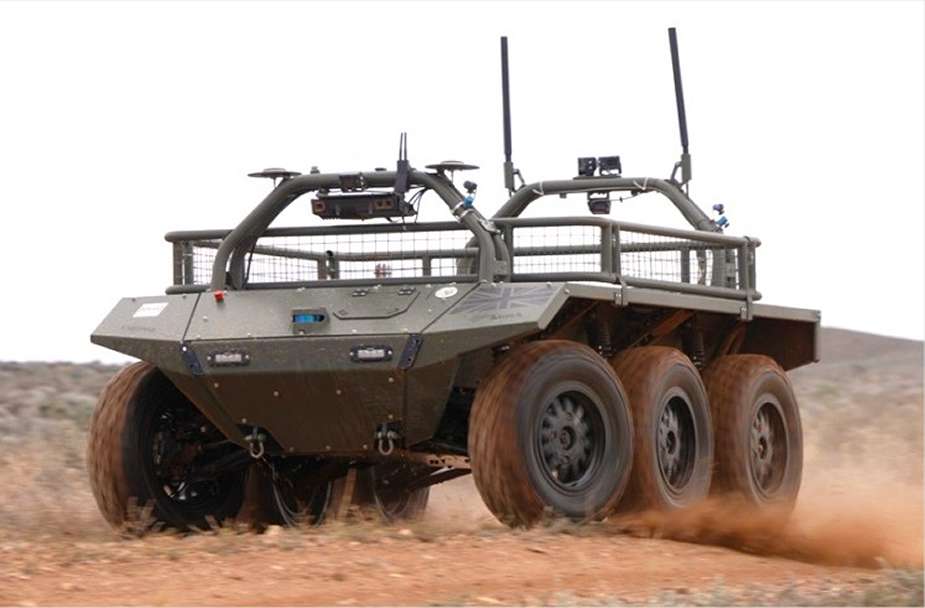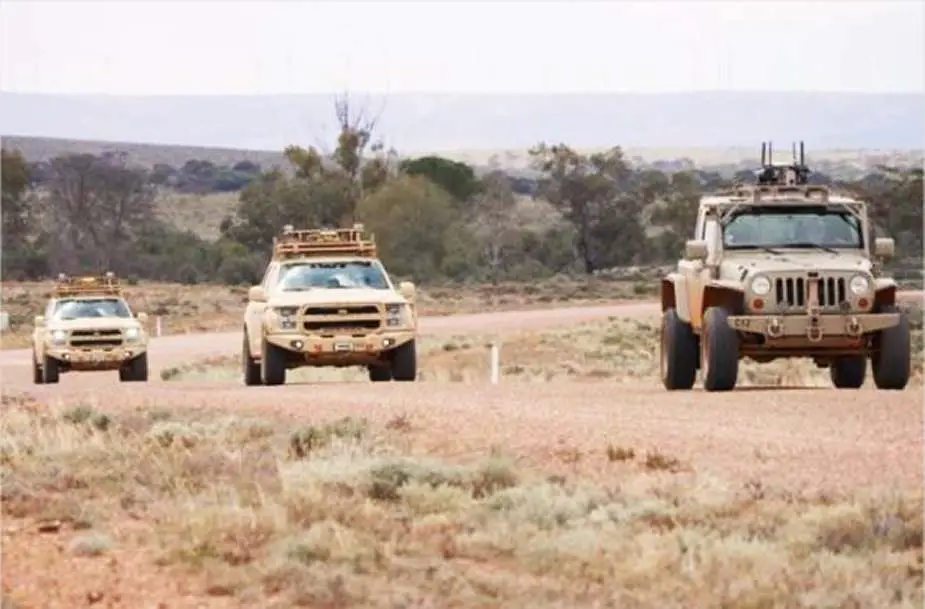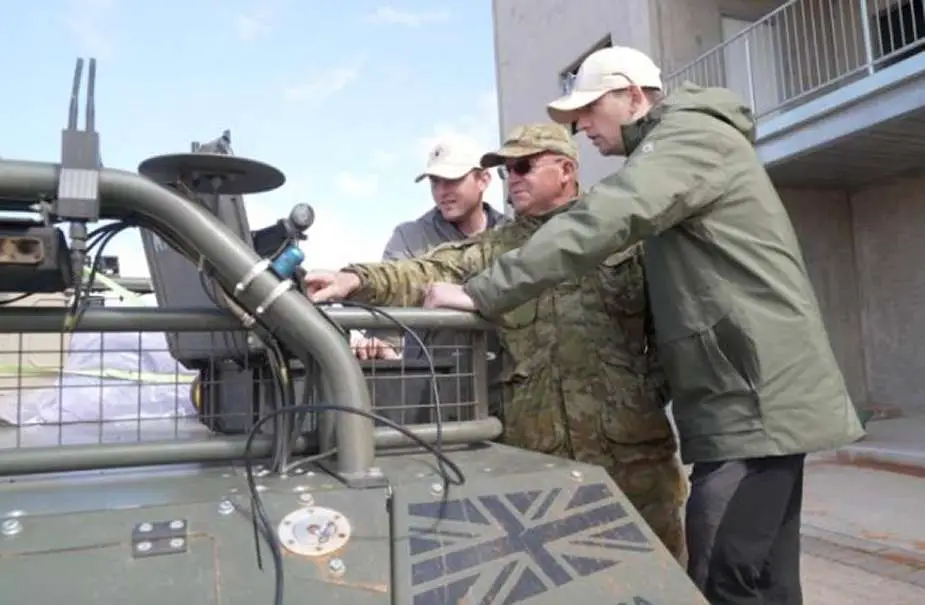Breaking news
AUKUS alliance explores AI Artificial Intelligence in robotic vehicle trials.
Australia, the United Kingdom, and the United States have successfully showcased their prowess in integrating advanced autonomy and artificial intelligence (AI) during a recent trial in South Australia. In late 2023, they conducted the Trusted Operation of Robotic Vehicles in a Contested Environment (TORVICE) trial, which brought together cutting-edge AI technology from these three nations to put uncrewed robotic vehicles to the test.
Follow Army Recognition on Google News at this link

TORVICE was specifically designed to evaluate the ability of autonomous vehicles to execute their missions while maintaining network connectivity in a hostile environment (Picture source: Australian DoD)
TORVICE was specifically designed to evaluate the ability of autonomous vehicles to execute their missions while maintaining network connectivity in a hostile environment. In December 2023, the defense ministers of the AUKUS alliance (Australia, UK, and US) announced their intention to incorporate resilient and autonomous AI technologies into their national programs in 2024, marking a significant step forward in adopting these technologies in land-based operations.
During the TORVICE trial, a range of UK and US robotic ground vehicles, representing autonomous multi-domain launchers and uncrewed ground vehicles, were deployed for long-range precision fires and other missions. Importantly, these vehicles were not armed during the trial. Australian scientists subjected these vehicles to simulated attacks, including electronic warfare, electro-optical lasers, and tests of their position, navigation, and timing systems to assess their resilience.

A US Jeep leads two US Ford Raptors during a Trusted Operation of Robotic Vehicles in a Contested Environment (TORVICE) trial (Picture source: Australian DoD)
Guy Powell, the Principal Adviser for Land Autonomy at the UK Defence Science and Technology Laboratory, emphasized the critical role of networked autonomy in future warfare, highlighting how robotic and autonomous systems can enhance military capabilities while reducing risks to human warfighters. He emphasized that TORVICE provided valuable insights into the operation of these systems in contested environments and the importance of enhancing their resilience through collaboration among the three nations.
Shane Canney, the Chief Land and Integrated Force at the Defence Science and Technology Group in Australia, stressed the importance of interoperability with AUKUS partners across various domains. Understanding how robotic vehicles perform in contested environments contributes to collective knowledge and the improvement of these systems to withstand potential attacks, all while prioritizing safety and ethics in their deployment.

Personnel discuss the next steps during a Trusted Operation of Robotic Vehicles in a Contested Environment (TORVICE) trial (Picture source: Australian DoD)
Kimberly Sablon, the Principal Director for Trusted Artificial Intelligence and Autonomy at the US Department of Defense, noted that TORVICE built upon the previous AUKUS artificial intelligence and autonomy trial held in the UK. This project involved rigorous testing and assessment of autonomous and AI systems to identify and mitigate vulnerabilities, ultimately enhancing their resilience in complex and contested environments.
Through AUKUS collaboration, Australia, the UK, and the US are advancing their collective understanding of AI and autonomy technologies, with a focus on rapidly deploying robust and trustworthy AI and autonomy solutions in complex operational scenarios. Importantly, these nations are committed to the safe and responsible use of AI as they continue to develop and implement these technologies.
Defense News February 2024



















